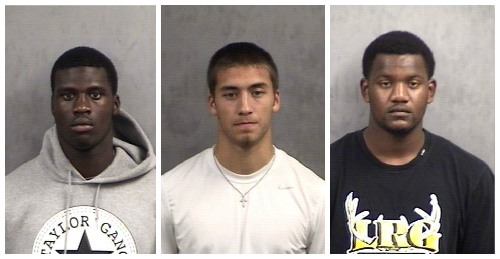Wednesday’s Senate Commerce Committee hearing on college athletics was filled the typical bluster of political theater. It yielded precious little in the way of new information or insight.
The one major exception came when Missouri Democrat Claire McCaskill lashed out at NCAA President Mark Emmert regarding her finding that more than 20 percent of schools charge their athletics departments with sexual assault investigations involving athletes.
Emmert’s job in a nutshell: Take all the public shame as his member schools skate by in the shadows. Yet, although McCaskill may have directed her scorn at the wrong target, it doesn’t make her criticism of the practice any less relevant.
ADs were created to set up track meets and get new stadiums built. The suggestion that they possess the required competencies to conduct a meaningful sexual assault investigation would be laughable it the stakes weren’t so high. Furthermore, they’re being asked to investigate the same athletes who receive their support services. That alone cast doubt on the possibility of coming to an unbiased conclusion in such an investigation.
Taking the responsibility to investigate sexual assault out of the hands of ADs seems like a no-brainer. But I have to ask, Why stop there?
Think about discipline in the world of major college football through this same lens.
Maybe there was a time when coaches really were builders of men. If so, that ended long ago. Take a look at a typical head coach’s compensation package for proof. (Look at your athletics director’s contract while you’re at it.) Programs reward them for the trophies they bring home, not for molding their players into swell young men.
That may sound cynical, but this should actually be a good thing. Football coaches aren’t psychologists or counselors. They aren’t meant to steer 18-year-olds into adulthood.
Musicians make music. Teachers teach. Coaches coach.
Yet, in general, coaches continue to have a role in dealing with player conduct, and suspending a star linebacker or quarterback won’t help them succeed on Saturday. While we incentivize coaches to win, we also expect them to work against their own interests. By giving college coaches an influential voice in determining who sits, who skates and who gets a pink slip, we’re all but begging them to manipulate the disciplinary system to suit their own goals. This not only promotes favoritism for stars, it facilitates inequitable treatment of lesser talents. In other words, coaches also get a convenient cover for culling dead weight from their herds.
If schools and fans really do want to see justice doled out fairly to players, the simplest fix is to just remove coaches and athletics departments from the equation.
For university-specific rules, adhere to the same guidelines that apply to any other student. For criminal investigations, let the police do their thing. For the interim period in which an investigation is ongoing, establish transparent “due process” standards regarding the ability of an athlete to continue to attend class and participate in sports. Once the investigation is complete, leave it up to the school or the legal system to determine what penalties are necessary.
In short, get rid of the special protocols for football players and college athletes altogether. When it comes to off-the-field allegations, just treat them like students.

